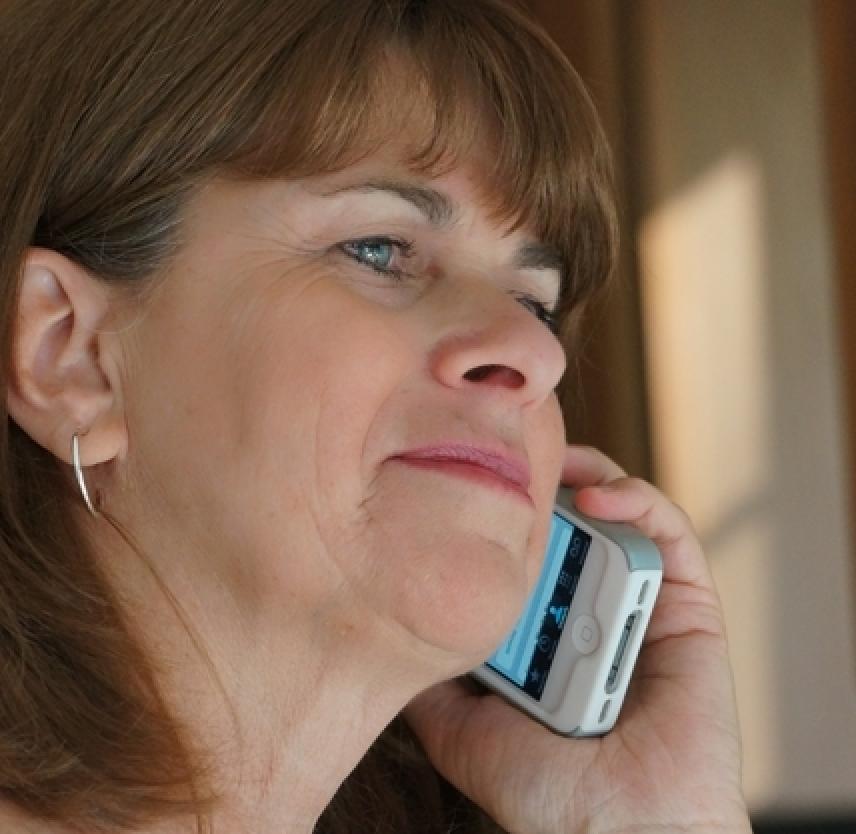
Here’s the good news: Competent, compassionate caregiving makes a difference!
I am not a doctor or a therapist, but here’s what I have learned during the most intense time following Hugh’s severe brain injury. It’s my personal belief that the quality of full-time care someone with TBI receives during the first two years post-injury has the potential to greatly impact outcome. Here’s how:
1. Caregivers may be the portal to the injured person’s will to live.
When Hugh was unconscious, his nurse could not get him to respond, but he did respond to his daughters and to me. By touching and talking to Hugh when he was unconscious, I feel we tapped into something intimate, primal, and integral to his survival.
2. Observant caregivers can get help fast when it matters. Treating any swelling of the brain is crucial to the level of outcome.
In cases of severe TBI, doctors usually control brain swelling, but in cases of mild or moderate TBI, a caregiver should know these signs and should immediately share this information with his or her physician. Hugh’s injury was so severe that he was monitored 24/7 for intracranial pressure (swelling on the brain) in the ICU, but when people are not being monitored, there are other signs. According to WebMD, symptoms of brain swelling vary, depending on the severity and the cause. Usually, brain swelling begins suddenly. These are the symptoms:
- Headache
- Neck pain or stiffness
- Nausea or vomiting
- Dizziness
- Irregular breathing
- Vision loss or changes
- Memory loss
- Inability to walk
- Difficulty speaking
- Stupor
- Seizures
- Loss of consciousness
3. Caregivers will often choose rehabilitation services that can impact outcome.
Once the initial trauma is controlled, many people with TBI will require rehabilitation, and many of them are not physically and/or cognitively able to choose a rehab center or get themselves to rehab. Features of the rehab facility should be considered in accordance with the patient’s unique needs. Here are a several that made a difference to us:
- We needed a facility that offered day services providing physical, psychological, cognitive, speech, recreational and occupational therapies.
- We needed a facility that was not too far away since Hugh became very sick when riding in a car due to balance issues.
- We needed a facility that accepted our insurance plan.
- Personally, I wanted a facility with a competent and caring staff and a proven record of success with patients.
- I also sought out a facility that would let me be a part of the team. I wanted a group of professionals that valued my input as Hugh’s full-time caregiver. I wanted updates, information, team meetings, and advice regarding challenges we faced in our home during Hugh’s time in rehab.
4. Caregivers provide crucial information when conditions change.
Caregivers are with their injured loved one most often, and therefore may see changes in behavior or symptoms that should be reported to doctors and therapists for immediate intervention so complications do not become major setbacks. For example, after a TBI, a person may not experience seizures for months, and then suddenly have a seizure. This happened to Hugh after 10 months. He suffered a grand mal seizure while working out at the gym. We followed up with his primary care doctor and his neurologist to be sure he had no other underlying problems. He has not had a seizure since!
Another example would be sudden personality changes; these could be indicative of physical changes or depression. Hugh was put on an antidepressant very soon after his injury, but when it became increasingly apparent that he was motivated but too tired to follow through, we had him re-evaluated for depression. We found he was not depressed and he was taken off that medicine. Once off the medicine, his energy level increased. On the flip side, caregivers should be acutely aware of the signs of depression and call a doctor if they suspect their loved one is depressed.
5. Caregivers impact mood and morale, and mood and morale impact outcome!
Caregivers are cheerleaders and guidance counselors. We are the pep team, the support team, and the reason our loved one pushes on. Reassurance, encouragement, and unconditional love are as important as any surgical operation or therapy after TBI, and provide benefits that far exceed our capacity to measure. Keeping Hugh involved in family activities and outings always lifted his spirits and gave him something to look forward to. Everyone needs to feel included and wanted. Something as simple as asking him his opinion on something could lift his spirits because he knew his opinion mattered.
It’s easy to lose sight of how important caregiving can be day to day, but every little thing adds up, and the best possible outcome is what great caregiving is all about.
Reference: WebMD

Comments (9)
Please remember, we are not able to give medical or legal advice. If you have medical concerns, please consult your doctor. All posted comments are the views and opinions of the poster only.
Anonymous replied on Permalink
Anonymous replied on Permalink
Anonymous replied on Permalink
Anonymous replied on Permalink
Anonymous replied on Permalink
Anonymous replied on Permalink
Anonymous replied on Permalink
Anonymous replied on Permalink
Anonymous replied on Permalink